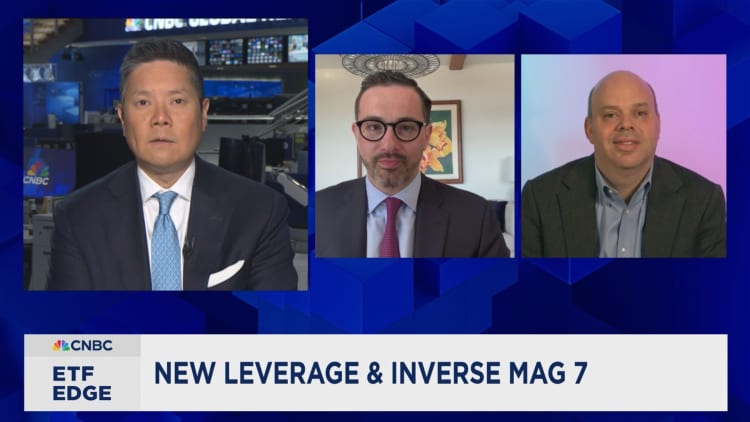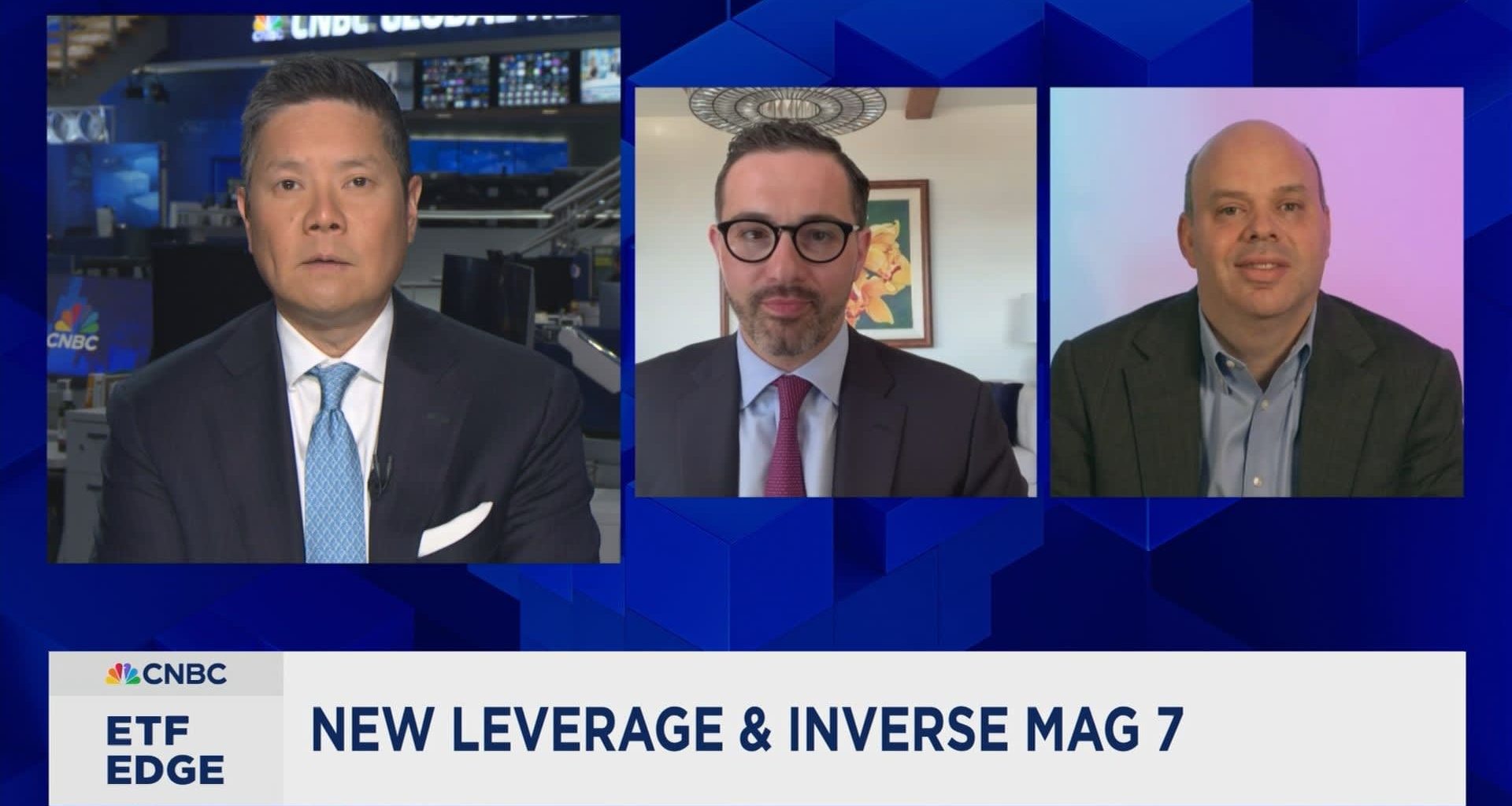
A major exchange-traded fund provider is going deep on two popular plays: megacap tech and weight loss drug stocks.
In health care, Roundhill Investments is getting ready to launch a fund that focuses on the companies behind GLP-1 drugs. Dave Mazza, the firm’s chief strategy officer, expects to have more information on the fund’s debut in May.
“It’s going to be important to kind of keep an eye on this space,” Mazza told CNBC’s “ETF Edge” this week. “We’re going to see some rapid advancements in drugs. We’re already seeing rapid advancements of those leaders launching new drugs and new opportunities in the market.”
This wouldn’t be Roundhill’s first new product this year. The firm launched leveraged and inverse exchange-traded funds three weeks ago that track widely held tech stocks. They are the Roundhill Daily 2X Long Magnificent Seven ETF (MAGX) and the Roundhill Daily Inverse Magnificent Seven ETF (MAGQ).
MAGX is designed to profit from “Magnificent Seven” gains, which comprises Alphabet, Amazon, Apple, Meta Platforms, Microsoft, Nvidia and Tesla. Meanwhile, MAGQ gives investors a way to bet negatively on the group.
“These are tools that can be used for traders who have short-term views on the Magnificent Seven — both positive and negative to express that view,” said Mazza. “If you’re bullish, maybe look to that two-times amplified exposure with MAGX. Or, if you want to hedge your position or take an outright bearish view on a short-term basis, there’s MAGQ.”
Both funds reset their performances each day. So, they’re considered risky choices for investors, according to Mazza.
“You need to be able to view your positions on a daily basis. You can hold it for more than a day, but you need to be able to reassess: ‘Is this the right trade for me to be in?'” Mazza said. “They’re not intended to be held for longer time periods.”
‘You’re going to strike out a lot’
VettaFi’s Todd Rosenbluth cautions leveraged and inverse ETFs may not be suitable for every investor due to volatility.
“You really need to go in with your eyes open and understand that every day these could perform really well or really poorly,” the firm’s head of research said. “I like to think of leveraged and inverse ETFs as in playing baseball swinging for the fences. You’re going to hit a couple of home runs. You’re going to strike out a lot.”
Since their debuts on Feb. 29, the Roundhill Daily 2X Long Magnificent Seven ETF is up almost 7%, while the firm’s Daily Inverse Magnificent Seven ETF is down nearly 4%.
Read More: World News | Entertainment News | Celeb News
CNBC








